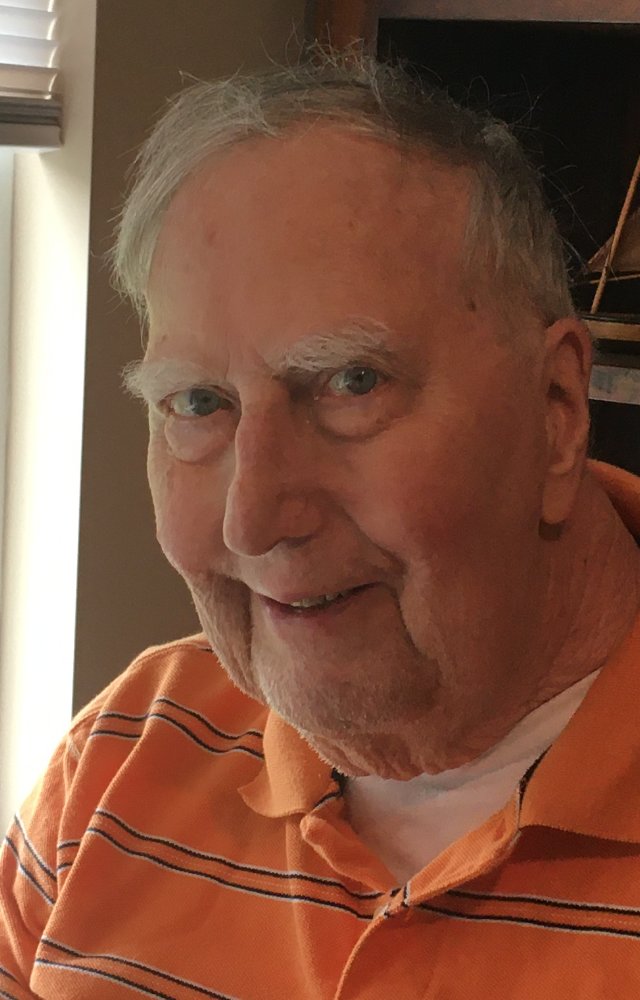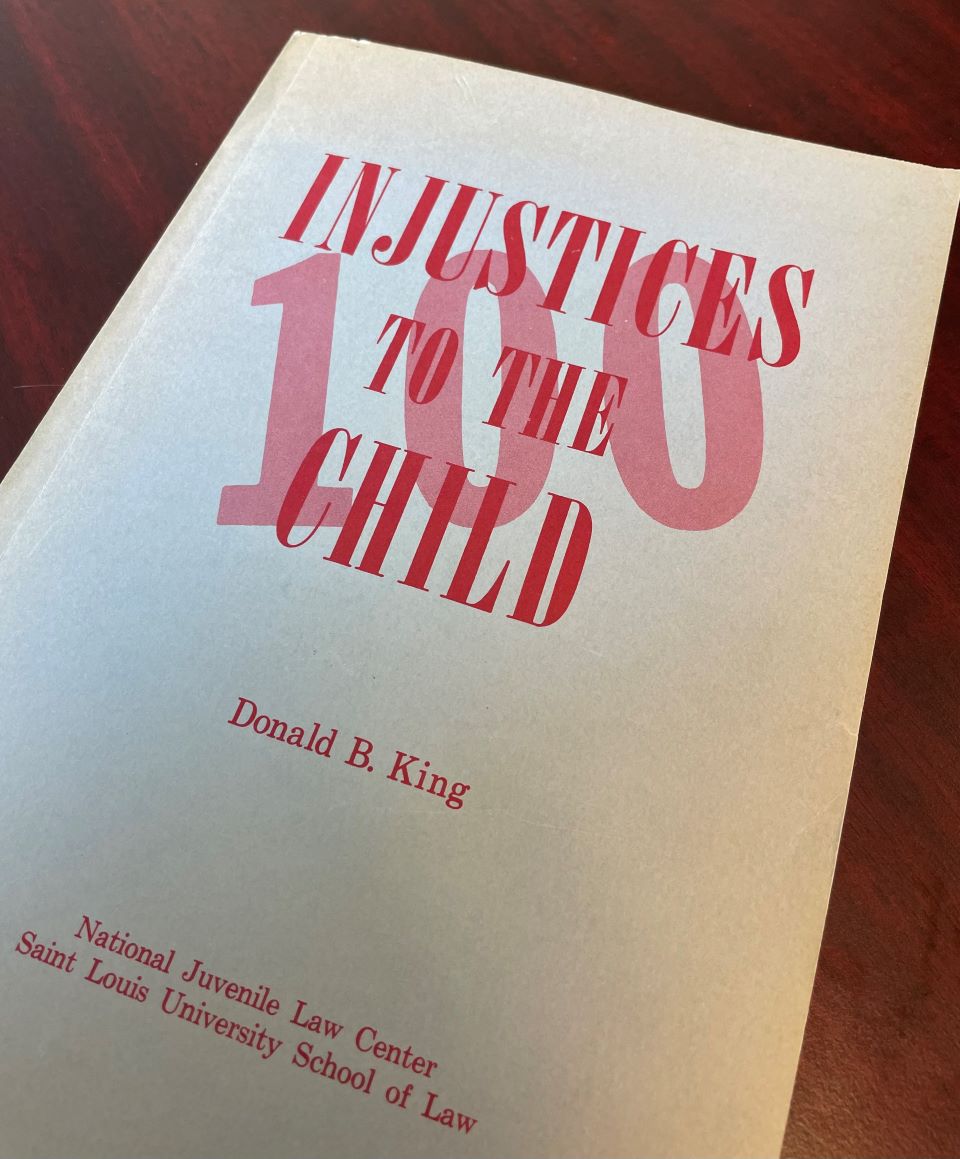Remembering Don King: 1932 - 2022
After a childhood in Corvallis, Oregon, education from Washington State University, Harvard Law School, and New York University, Donald B. King made his way to Saint Louis University to earn his fourth degree, his M.S.W. SLU wouldn’t be the last stop in King’s life by far, but he made a lasting positive impact on the community. Now, 59 years after King first joined the Saint Louis University School of Law faculty, his legacy still inspires many.
 Professor Emeritus King’s list of achievements stretches throughout the length of
his lifetime. From his hundreds of authored works to the foundations he built during
his career, King was a mover. Professor Brendon Roediger, director of the Civil Advocacy
Clinic at SLU LAW, wasn’t around when King was a professor, but that doesn’t mean
he hasn’t heard of King’s accomplishments. In fact, Professor Roediger considers himself
as somewhat of a SLU LAW history hobbyist. For his knowledge of Don King’s era at
the law school, Roediger spoke of the professor’s professional life and passions.
Professor Emeritus King’s list of achievements stretches throughout the length of
his lifetime. From his hundreds of authored works to the foundations he built during
his career, King was a mover. Professor Brendon Roediger, director of the Civil Advocacy
Clinic at SLU LAW, wasn’t around when King was a professor, but that doesn’t mean
he hasn’t heard of King’s accomplishments. In fact, Professor Roediger considers himself
as somewhat of a SLU LAW history hobbyist. For his knowledge of Don King’s era at
the law school, Roediger spoke of the professor’s professional life and passions.
“He was a renowned expert in consumer and commercial law,” Roediger said. “But, at the same time, he’s doing work on the side. This included writing one of the first serious books about Civil Rights lawyering, another book about the failures of our juvenile legal system and founding the National Juvenile Law Center. And, in that capacity, he worked with juvenile detention halls and wrote about how children were being treated in those spaces.”
Juvenile law in the United States has expanded in interest and has made positive developments
since King was active in the field. Published in 1971, 100 Injustices to the Child
showcased his ardor for righting the wrongs against children in the justice system
and ensuring a new, better way. King questioned the entire structure of juvenile justice
in his book. He challenged social workers, lawmakers, judges, and even the public,
such as in Injustice 94 where King stated: “Despite the fact that the basic purpose of the entire juvenile court system is that of rehabilitation,
some vocal segments of the public often demand vengeance.” King also laid the foundation
to train new lawyers to protect children in all these areas. Appearing in Volume 12
of the Saint Louis University Law Journal (as of 2023, the Law Journal is preparing
to publish Volume 67), “Training in Juvenile Delinquency Law: The St. Louis University
Law School Forum-Clinic" was written by King as a model to keep up the movement of
juvenile law studies. In his own words: “Dealing with a new type of legal training
in a unique area of the law, it serves to give specialized education and may offer
a model for future legal education endeavors in other frontier areas as well as juvenile
delinquency law.”
the basic purpose of the entire juvenile court system is that of rehabilitation,
some vocal segments of the public often demand vengeance.” King also laid the foundation
to train new lawyers to protect children in all these areas. Appearing in Volume 12
of the Saint Louis University Law Journal (as of 2023, the Law Journal is preparing
to publish Volume 67), “Training in Juvenile Delinquency Law: The St. Louis University
Law School Forum-Clinic" was written by King as a model to keep up the movement of
juvenile law studies. In his own words: “Dealing with a new type of legal training
in a unique area of the law, it serves to give specialized education and may offer
a model for future legal education endeavors in other frontier areas as well as juvenile
delinquency law.”
The article continues to lay out the foundation of what a law student would achieve in such a clinic. To this day, King’s formula still holds. Assistant professor and director of the Children’s Permanency Clinic, Kathryn Banks, continues the work Don King began. Professor Banks joined SLU LAW in July of 2021. She previously was the legal services director of Voices for Children, advocating in court to ensure children receive safe and permanent homes. She continues this mission at SLU LAW, and helps her students do the same. Under her instruction, students of the Children’s Permanency Clinic start at the root of the problem and take on custody and family law cases. “It’s all about finding kids safe, permanent homes,” Banks said. “If we help kids achieve permanency, maybe their outcome and their well-being will be better. And, maybe, we can prevent them from going through the system.” As for Don King’s belief that the legal clinics will create great lawyers, Professor Banks agrees: “It helps students understand what they’ve been reading about. It puts something tangible in front of them. Instead of just reading a case about people, you are working with the people in the case ...You are a better lawyer if you have the opportunity to roll up your sleeves and practice.”
The United States wasn’t the only country that benefited from King’s teachings. Among
his international travels were England, Australia, Sweden, China, Egypt and Israel.
His name can be found on the International Academy of Commercial and Consumer Law
(IACCL) website, as he was a founder and past president. Since the first meeting at
Universidad Nacional Autónoma de México in 1983, the Biennial Conference has been
held countries such as Austria, Sweden, Germany, Latvia and, most recently in 2018,
Durham, UK, before going online for their 2021 meeting. The meeting was also held
at Saint Louis University in 1994, facilitated and organized by Donald King himself.
At the top of his accomplishments, King was a beloved husband, father and teacher.
He married Judith S. King on October 29, 1955, and spent 63 years together before
her passing in 2019. They were the devoted parents of Carmen Maria and Donald George.
Former Missouri Supreme Court judge and chief justice, Professor and Dean Emeritus
Michael Wolff remembers his meetings with King fondly. “He was very adaptable, very
friendly, and a little bit scattered, sometimes; he had a great range of interests.
For forty years, maybe more, he owned a home in Lake Sherwood, Missouri. After he
retired, he moved out there,” Wolff said. Still residing in that Lake Sherwood home,
on October 20, 2022, Don King passed away. He was 90 years old. His impact on Saint
Louis University School of Law is undeniable. After his retirement, the King Family
Award was established to honor King and recognize outstanding student achievement
in the Master of Laws for Foreign Lawyers program. SLU LAW continues to honor and
remember the handiwork, the ingenuity, the versatility, and the perseverance of Professor
King.
By: Elliot Laurence